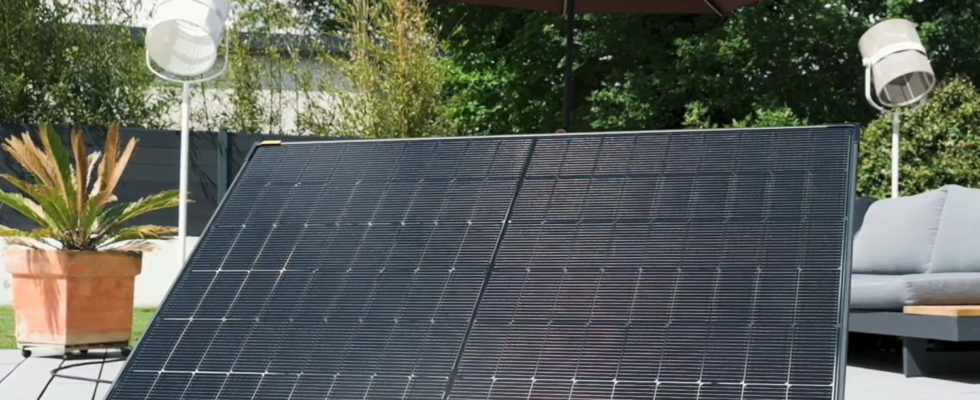Easy to install and use, ready-to-use solar kits that plug into a simple electrical outlet are enjoying growing success in France. But a new standard could simply ban them.
Ecological concerns and the continued increase in the price of electricity have revived French interest in renewable energy production equipment. In this regard, photovoltaic panels on roofs remain the most efficient solution in the long term, but their installation is complex, expensive and requires the intervention of a professional.
Faced with this problem, new devices for producing electricity at home have appeared, and have been gaining popularity in recent years: solar kits plug-and-play. These ready-to-use devices, which consist of one or more small solar panels and microinverters, are in fact particularly simple to install and use. Some even have batteries to store electricity when it is produced and consume it later, particularly at night.
In practice, you just need to place them on a flat surface, on a terrace, a garden or a balcony, orienting them appropriately, then plug them directly using a simple cable into one of the power outlets. from the home to inject the electricity produced. No costly work required, just a few minutes to install them. No cumbersome administrative process either, you just have to make a simple free online declaration to the network manager.
With a maximum power of 300 to 500 watt-peak (Wp) per panel, these solar kits obviously cannot power all the equipment in the house, but they can constitute a significant source of additional energy, especially when you combine several of them. And with a price ranging between €200 and €600 per unit on average, they are attracting more and more users, attracted by their ease of installation and the savings they promise to make.
But this growing popularity could well come to a sudden halt. Indeed, as reported by 60 million consumersa recent revision of the NFC-15-100 standard, which governs the compliance of electrical installations in buildings, indicates: “an electrical energy generator must not be connected to a terminal circuit by means of a socket-outlet or plug”.
However, these famous solar kits plug-and-play work precisely in this way, and it is in fact this precise characteristic which makes it interesting for certain households. This regulatory development could therefore make all devices already in circulation illegal and prevent the marketing of new products of this type.
In response, the Renewable Energy Union (SER) and the Solar Energy Professionals Union (Enerplan), released a joint press releasein which they worry about the potentially harmful consequences of this standard. To protect the market for domestic energy production equipment, the two organizations are calling for clarification, or even relaxation, of the regulations.
If we can understand the economic issues that agitate the two unions, we must nevertheless admit that a regulatory tightening was necessary. Many users of these solar kits, ill-informed or unscrupulous, install and connect them without any precautions, disregarding basic electrical safety rules.
And at the risk of triggering serious fires, with potentially dramatic consequences, particularly in collective housing buildings. If you are interested in this type of photovoltaic kits to plug in yourself, it is better to wait a little before purchasing, and see what the position of the public authorities will be on their compliance or not with the regulations.
